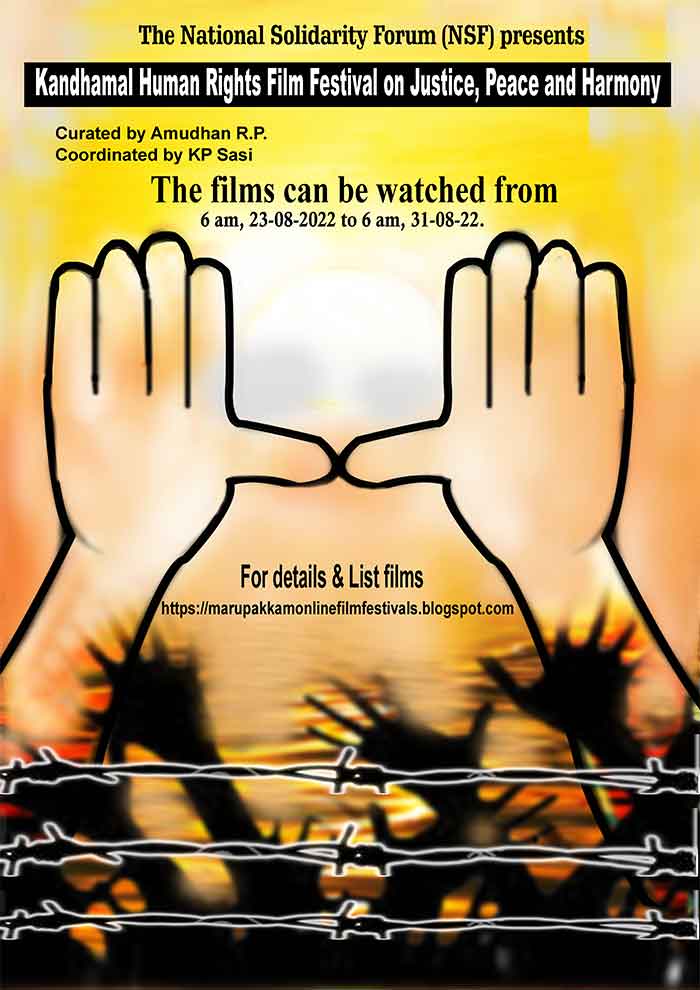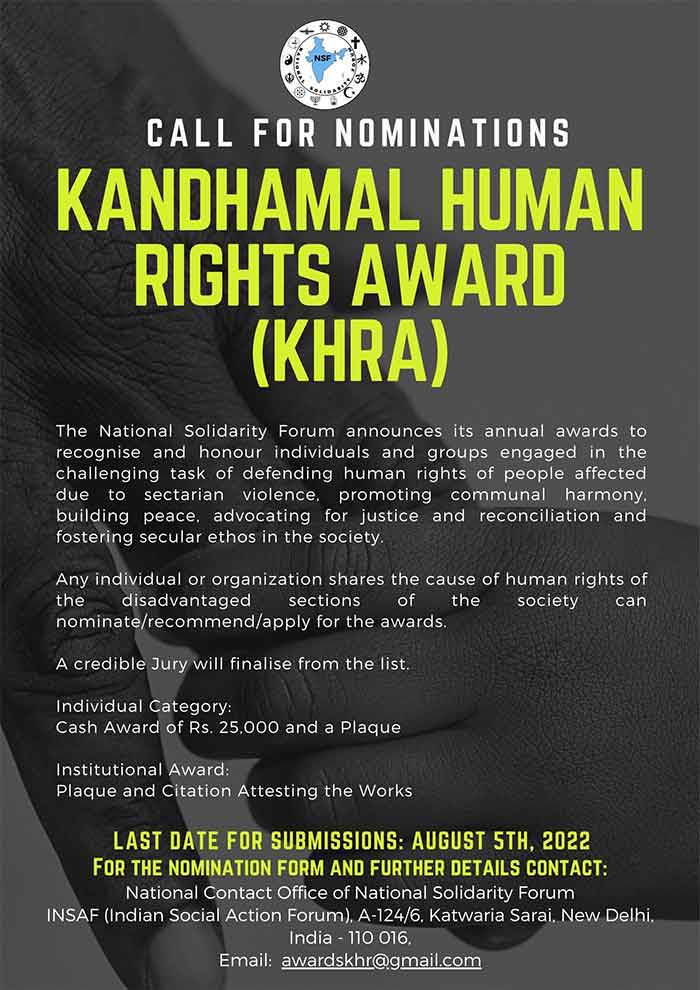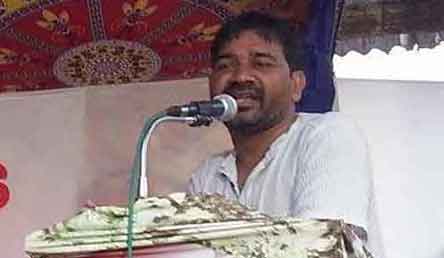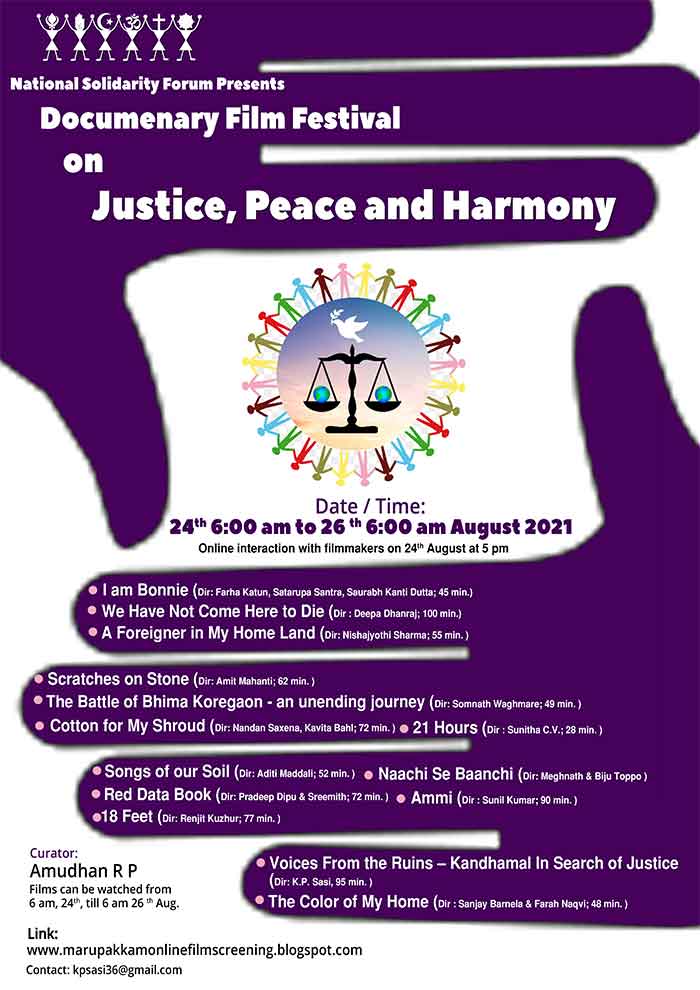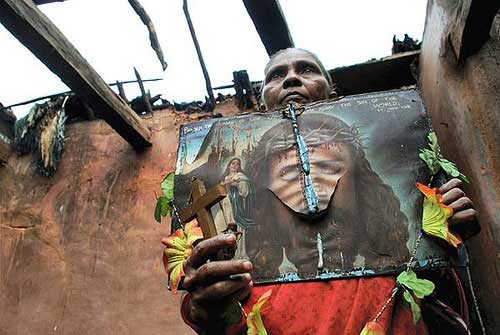
Preamble
Every human being is born with intrinsic rights which recognise and protect her or his life and dignity.
As civilization progressed, and specially with the formation of the United Nations after World War II, many international charters and covenants were formulated to define and codify these rights, and enjoin on member States to protect them.
India with its plural culture and many religions, and its long struggle against colonialism, made substantial contribution in articulating the indivisibility and universality of all human rights. This underscored its work in women’s rights, non-discrimination, freedom of movement, right to work, secularism and multiculturalism. India is a signatory to the Universal Declaration of Human Rights, and the United Nations Charter of Human Rights and to several other, if not all, Covenants and Treaties on specific rights and civil liberties. India played a stellar role in the conceptualisation and development of freedom of religion and belief, and minority rights
The Indian Constitution recognises individual human rights, and makes it abundantly clear that the rights devolve on the people without discrimination on the ground of gender, race, religion, caste, ethnicity or language, sexualities and nationalities.
Historical experience globally, however, shows that the rights of different sections of society remain vulnerable, and indeed have been violated time and again. The violations of basic human dignity and rights of most vulnerable groups, among them ethnic, caste, sexual and religious minorities, are on the increase worldwide.
And in India, minorities are victims of dominant and assertive ideologies that scorn plurality and diversity. This goes beyond bigotry and hate campaigns; ait repeatedly foments mass violence. Organised hate campaigns and violence have an alarming speed in recent years.
These developments have not gone unnoticed internationally. The United Nations has alerted time and again on the issue of freedom and the rights of religious minorities. The US Commission on International Religious Freedom (USCIRF) has downgraded India to the lowest ranking, “Countries of Particular Concern’(CPC) in its 2020 report. The US State Department ranked India’s persecution severity at “Tier 2” along with Iraq and Afghanistan.
The Kandhamal Human Rights Award:
In the tragic landscape of hate, bloodshed, and impunity, the malevolent violence in the Kandhamal and adjoining districts of Odisha in 2007 and 2008 stands out for its organised attack on an entire population of Dalits, Adivasis Christians, women and children among them. Over 100 Christians were killed, several of them from the Clergy, over 56,000 displaced. More than 5,600 homes were destroyed, apart from 360 Churches and other places of worship, and public institutions including schools, social services and health institutions which were looted and destroyed. More than 40 women were raped, molested and humiliated. Several cases of forced conversion to Hinduism were reported. The education of 12000 children was disrupted. Many continue to suffer psychologically from the trauma of the violence they suffered.
Kandhamal violence is a unique case of multiple violations of basic human rights and dignity of the most vulnerable groups. Justice is yet to be done and rights to be restored. A study conducted by Supreme Court Advocate Vrinda Grover and Law Professor Dr. Saumya Uma, found the conviction rate to be as low as 5.13% of the cases brought to court. It was a mere 1% of the reports made to the police by the victims and survivors. The struggle for relief, rehabilitation and justice continues in courts and government forums.
All Rights, therefore, have to be constantly and continuously defended, safeguarded and secured, not just by the State, but also by the people. Over the years, many individuals and groups have committed themselves to secure and defend the rights of victims of violence, alienation and other discriminatory acts. It is a constant struggle to guard against any erosion or violations of the rights of sections of society.
The work of these individuals and collectives of human rights defenders has to be recognised, appreciated and supported by everyone desirous of a more humane and peaceful society.
The National Solidarity Forum was formed in the aftermath of the Kandhamal carnage. It is a platform of 70 groups committed to work for protection of human rights of disadvantaged sections of society. It organized a Peoples Tribunal under the Chairmanship of Justice A P Shah, former Chief Justice of the Delhi High Court and a former chairman of the Law Commission. The forum launched a mass sensitisation campaign with exhibitions which brought home the severity of the violence and the enormity of its impact on the victims, and on society.
The National Solidarity Forum, in pursuance of its solidarity and commitment to the defence of human rights, now wishes to institute Awards to recognise and honour individuals and groups in India who are engaged in the challenging task of defending human rights of disadvantaged sections of society .
The Awards:
Kandhamal Human Rights Award provides with an opportunity to honour the often unsung heroes of human rights, who go unrecognised and unnoticed despite their tremendous work in the realisation of human rights. The Kandhamal Human Right Awards will recognise individuals / organisations / movements for their outstanding contribution to the promotion, protection, and advancement of human rights, social justice and equitability for all.
There are two categories of Kandhamal Human Right Awards.
- Award to an Individual
- Institutional Award
- The “Kandhamal Human Rights Award” will keep us reminded of the loss of life and the pain of the survivors of the carnage in Kandhamal in 2007 and 2008.
- The Award for an Individual will carry a Cash Prize of 25,000 and a Plaque, while the Award to a Group, Institution or Campaign, will be a Plaque and Citation attesting to its work.
Nominations for the Awards:
Nominations will be invited or received from prominent individuals, groups, and movements. An eminent jury nominated by National Solidarity Forum (NSF) will choose the Awardees of a particular year.
However, in the inaugural year, the Core Committee of the NSF will be deemed to be the Jury.
From 2022, nominations will open on 1st January of the year and close on the 30th of June. NSF will announce the commencement of nominations for the 2022 award with adequate publicity detailing the format for the application or nomination, and the criteria guiding the Jury in its selection of the Awardees. The Awards will be presented a public function on Kandhamal Day on 25th August each year.
Eligibility for the Award:
Any individual / association / movement can recommend as well as could apply for the Kandhamal Award
- Individual Award:
Activists, writers, journalists, leader of people’s movements and organisations, film makers, artists, actors, dancers, musicians, and grassroot workers, known or unknown, who have contributed to human rights in a significant way.
- Institutional Award:
Grassroots organisations, Peoples Movements, Non-government organisations or Associations working for human rights and dignity, social justice, equitability and equality for all.

